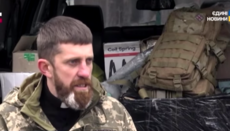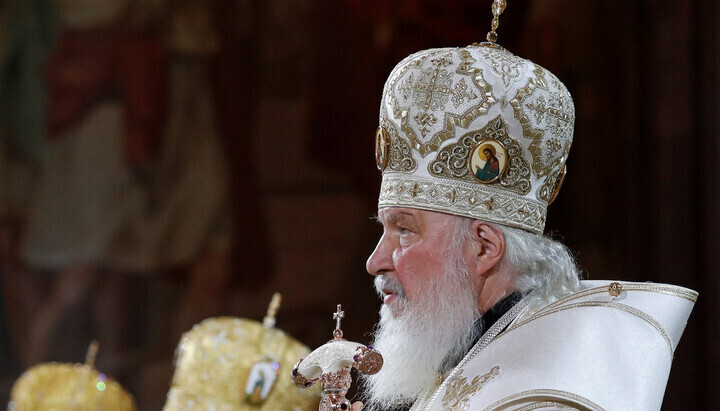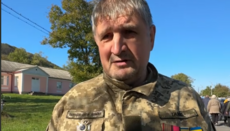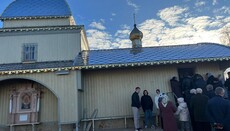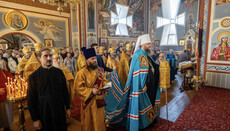Bishop Victor: Church raiding in Ukraine is gaining momentum

The clergy of the UOC constantly inform European human rights activists about the religious situation in Ukraine, said Bishop Victor of Baryshevka.
The Kiev Metropolis and the eparchial administrations receive reports of violations of believers’ rights almost every day, said the head of the UOC Representative Office to European International Organizations Bishop Victor (Kotsaba) of Baryshevka on the "Ours" TV channel.
Vladyka Victor notes: “Today the situation is not developing for the better, it is gaining momentum and almost every day there are reports to us, to the Kiev Metropolis or to the eparchial centres that certain disturbances are occurring in some parishes of our eparchies. We certainly hope that the law will nevertheless fulfil its role, and all processes will be legal, according to the law.”
According to the bishop, an appeal to officials of the UN, OSCE, EU and other countries to influence the religious situation in Ukraine, published a few days ago, is not new because since 2015 representatives of our Ukrainian Orthodox Church have been regularly participating in various international forums and conferences, speaking at various European venues in order to convey the position of the UOC. "We regularly appeal, provide reliable information – the one that corresponds to reality, not just on the basis of words, but on the basis of facts, we speak the language of facts – to the UN Human Rights Council, the Organization for Security and Cooperation in Europe, and UN Special Rapporteur on Freedom of Religion and Belief,” he explained.
He says that the UOC regularly participates in various events that take place in Europe, and talks about everything that is happening in Ukraine.
“There has been no vivid response to the last appeal yet, but I would like to recall bill 4128-d, passed by BP, which regulates the issues of re-registration, adoption of amendments and additions to the Statute of religious organizations. If we take its first edition, it contained two concepts that complicated the whole situation in Ukraine: the concept of self-identification, i.e. a person can come to any parish, to any church and say: “I identify myself with this temple and consider myself to be a believer of this particular temple”, as well as the concept of a territorial community, i.e. that the fate of the temple is decided by the territorial community. If, for example, 2000 people live in the village, and only 300 go to church, it is logical that the fate of the church – re-registration or change of subordination – should be decided by the believers who go to this church,” the hierarch explained.
He stressed: “A religious organization itself determines membership – whether it is fixed or non-fixed. Actually, in the villages there are no problems, people know each other, whether you go to church or not. But if strangers appear, they arrive on buses and start engaging in illegal activities, which is now happening in Western Ukraine, in Rovno, Ternopol, Khmelnitsky, Ivano-Frankovsk, and Lvov regions, then it goes without saying that this does not fit into the framework of the law adopted by the Verkhovna Rada on January 17, 2019."
“Of course, this is all documented at once in a report to the police, law enforcement bodies behave differently. I would like to give an example of the official statement of the police of the Vinnitsa region, where it was noted, according to the Constitution of Ukraine, that religious communities should decide their own fate, their affiliation. And if outsiders lead this activity, including the heads of village and city councils, this violates the Constitution of Ukraine. This was clearly indicated and had the right response for resolving the situation,” says Bishop Victor.
As the UOJ reported, the head of the UOC Representative Office to European International Organizations, Bishop Victor (Kotsaba) of Baryshevka, reported that at the moment there are 36 voluntary transfers of UOC parishes to the OCU: 23 with clerics, and 13 without them. The information announced in the mass media that from 200 to 350 parishes have passed into the newly-formed structure is not true.
In connection with numerous cases of violation of human rights and the threat of escalation of religious conflicts, Bishop Victor of Baryshevka appealed to officials of the UN, OSCE, EU and other countries to influence the situation in Ukraine.
